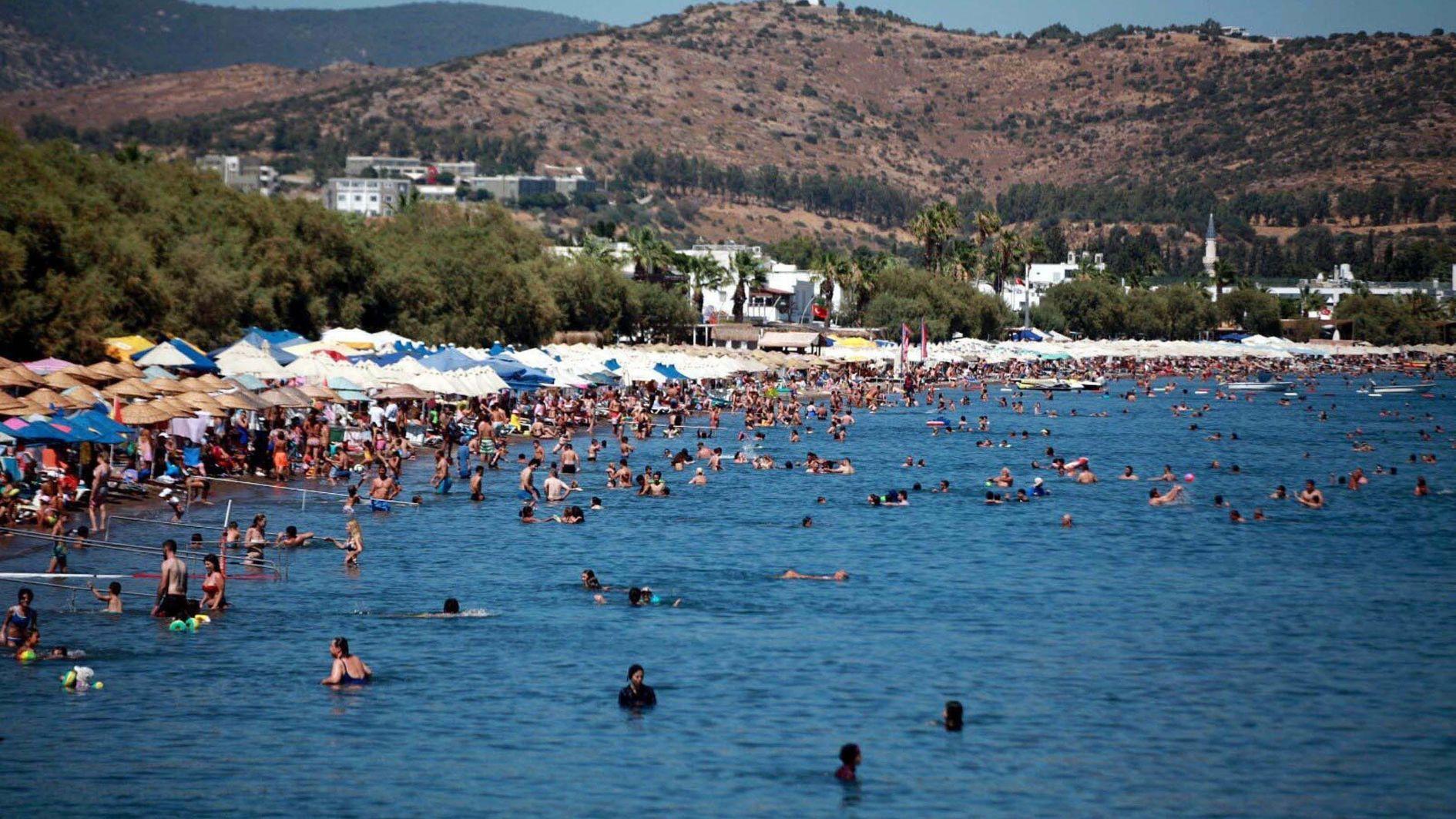
A long-term satellite data analysis has revealed that sea surface temperatures in the Aegean Sea are rising faster than the global average, extending the swimming season along Türkiye’s western coasts.
The study, conducted by Tuncay Kuleli, the director or Muğla Sıtkı Koçman University’s Bodrum Maritime Vocational School, examined data spanning 2008-2025 from the European Union’s Copernicus satellite program.
Using 6,452 daily sea temperature measurements, researchers mapped critical zones where warming trends have reached what they describe as a “red alert.”
Findings show that, across the Aegean, sea temperatures have increased by an average of 0.55 degrees Celsius per decade.
In some areas of Thrace and the northern Aegean, the rate has surpassed 0.9 degrees Celsius per decade, significantly higher than the global mean. By contrast, waters around Greece’s Cyclades Islands displayed more moderate warming patterns.
One of the most visible consequences of this trend is the lengthening of the swimming season. According to the analysis, while the onset of the season has remained relatively stable, its end has shifted later each year, extending by an average of 0.64 days annually. Over the 18-year period studied, this amounts to an overall extension of about 11 days.
Kuleli stressed that these results show how climate change is no longer an abstract forecast but a tangible reality shaping daily life, tourism and ecosystems.
“This is not just a theoretical climate model,” he said. “It directly affects holiday planning, coastal economies and the ecological balance.”
“On one hand, it may appear to create opportunities for autumn tourism, but on the other, we are witnessing disruptions in the biological rhythms of marine life and mounting stress on the ecosystem.”
Climate change has driven scorching temperatures and dwindling rainfall in the region, leading to massive wildfires in Türkiye this summer.
Recently, a climate change expert warned that wildfire risk in Türkiye may persist into September due to prolonged heat, drought and a lack of adequate rainfall.